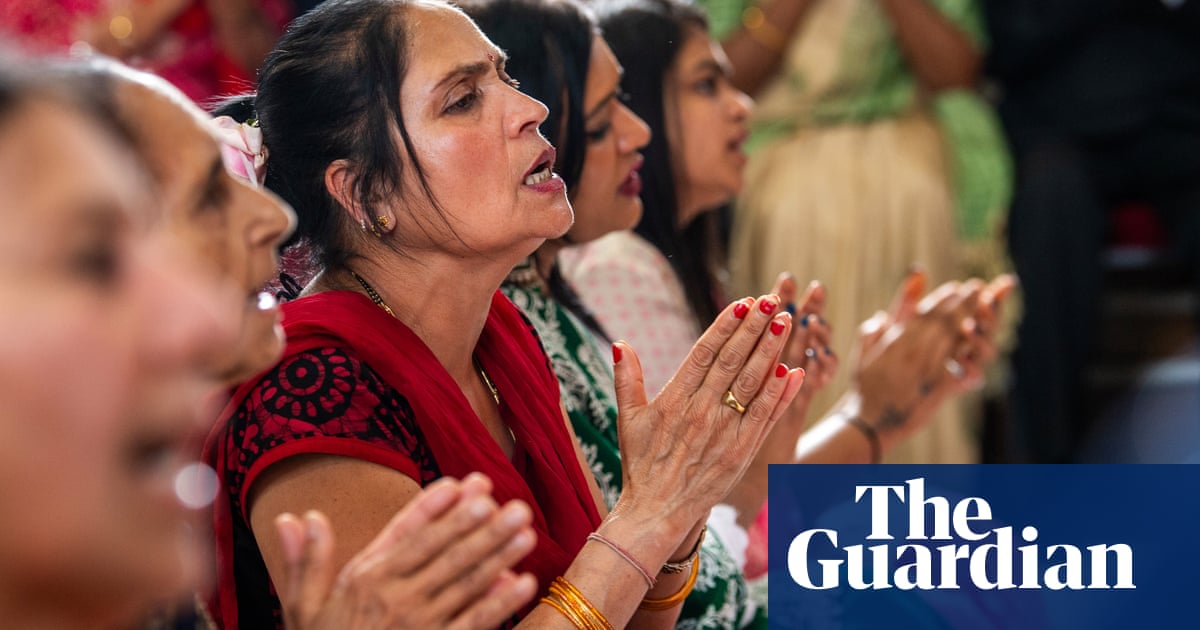In Harrow, north-west London, home to a large community of British Gujaratis, there was a sense of shock and profound sadness as people gathered at a community centre to mourn those who had beenkilled in the Air India flight.
Everyone’s phones had been buzzing all day on Thursday, said Aneka Shah-Levy, a local Labour councillor, as friends and family members across the world anxiously checked in on each other, and shared rumours and snippets of what information they knew.
Though she hadn’t yet learned the names of anyone she knew who had died, she was unsure if it would stay that way, said Shah-Levy. “Coming from Harrow, and knowing what the community is like, how close the community is and the links we have, then – goodness – you wait. There’s that horrifying feeling that there will be connections that will lead back here. It’s just unimaginable.”
Shah-Levy had joined dozens of others at the International Siddhashram Shakti Centre, close to the high street, to pray and light candles. “I have had this sense of panic and sadness all day that I haven’t been able to shift, and being able to come here and gather collectively in some way, it’s important,” she said.
Some of those present had already heard the names of people they believed had been on the flight. Bhupendra Buch, a retired police community officer, said an uncle of his in India had messaged to tell him his two granddaughters were on board, though Buch was unsure if they had been injured or killed. He had also been told that another Indian couple who he had lived next door to many years before had also been killed.
Few operators fly direct between Ahmedabad andLondon, so this same Air India journey is a trip that many here have taken many times, said Navin Shah, a retired architect and former Labour chair of the London Assembly. Shah was born in a small town 20km (12 miles) from the crash site, and said he knew the area intimately. “As we speak I can vividly picture the whole area.”
It had been an exhausting and overwhelming day, he said, apologising for the emotion in his voice. “Since the morning, I’ve been talking to my nephews, my cousins and friends who live in Ahmedabad, within spitting distance. The sense of shock I got from them, phone call after phone call, is that of horror and disbelief.”
He said he believed the majority of those present, as well as in other British Indian communities in places like Leicester and Brent, would have connections with someone who had died.
Shah has been discussing with family members in India what they could do for the part of the city where the plane fell, which he said included a slum. “You have got to look, in the gloom, at what good you can do. That’s what I’m looking towards. That something good can and must come out of this event. If we can help regenerate that community, that will be something,” he said.
For Shri Rajrajeshwar Guruji, the spiritual leader of the community, the crash was “very, very sad news, it is a very big disaster”. Guruji said he personally knew the names of “13 or 14” people he believed had been on the flight, including Vijay Rupani, the former chief minister of Gujarat, who had previously worshipped at the centre. Rupani has been confirmed as one of those on board.
The disaster had had a “big impact” on the British Gujarati community, Guruji said. “I can only try to give them spiritual support, because beyond that, God is the only one who can give them strength.”
The community is braced for hard days ahead, said Shah-Levy. “Obviously, it’s still very early days. No one really knows yet. As more names come through, no doubt there will be more prayer meetings. There will be many people among us who have lost someone. This is a day that we won’t forget – for all the wrong reasons.”
